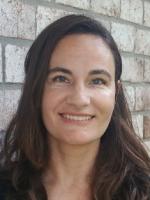Larissa Dias is a postdoctoral research associate at the University of Washington’s Cooperative Institute for Climate, Ocean, and Ecosystem Studies and a member of the Ocean Climate division at PMEL. She is working on improving the usability of Biogeochemical (BGC) Argo float data, which is a global set of robotic profiling floats which collect biogeochemical measurements. Her project aims to produce three data products which align with this goal. First, she will develop and validate existing machine-learning based methods (empirical seawater property estimation routines) which allow estimation of carbonate and non-carbonate nutrient seawater properties from observations such as BGC Argo. Second, Larissa will propose recommended adjustments for cruise pH and release a companion product to datasets with adjustments applied to account for inconsistencies in measurements strategies used for pH and incomplete metadata. Third, she will produce a semi-automated Quality Control Assistance Tool aimed at helping researchers identify anomalous seawater measurements that warrant further investigation. Altogether, this research will help researchers more efficiently use the growing quantity of available oceanic chemistry data. The oceans take in approximately 25% of anthropogenic CO2 emissions, resulting in ocean acidification which, along with climate changes, is increasingly impacting marine systems and the organisms and people who rely on them. Larissa’s research helps to address these pressing issues by making data from autonomous floats more usable to marine researchers.
Larissa is currently involved in translating existing algorithms for seawater property estimation from MATLAB to Python programming languages. Since Python is freely available, this will greatly increase accessibility to these algorithms for researchers. This in-progress work aims to display some potential uses of this product and highlight the overall identical results between the MATLAB and Python versions.
Larissa’s dissertation research was on carbonate chemistry of subtropical estuaries in the northwestern Gulf of America, which play a disproportionate role in the global carbon cycle. Larissa obtained her master’s and doctoral degrees at Texas A&M University-Corpus Christi’s Harte Research Institute, and her B.S. at the University of Texas.



